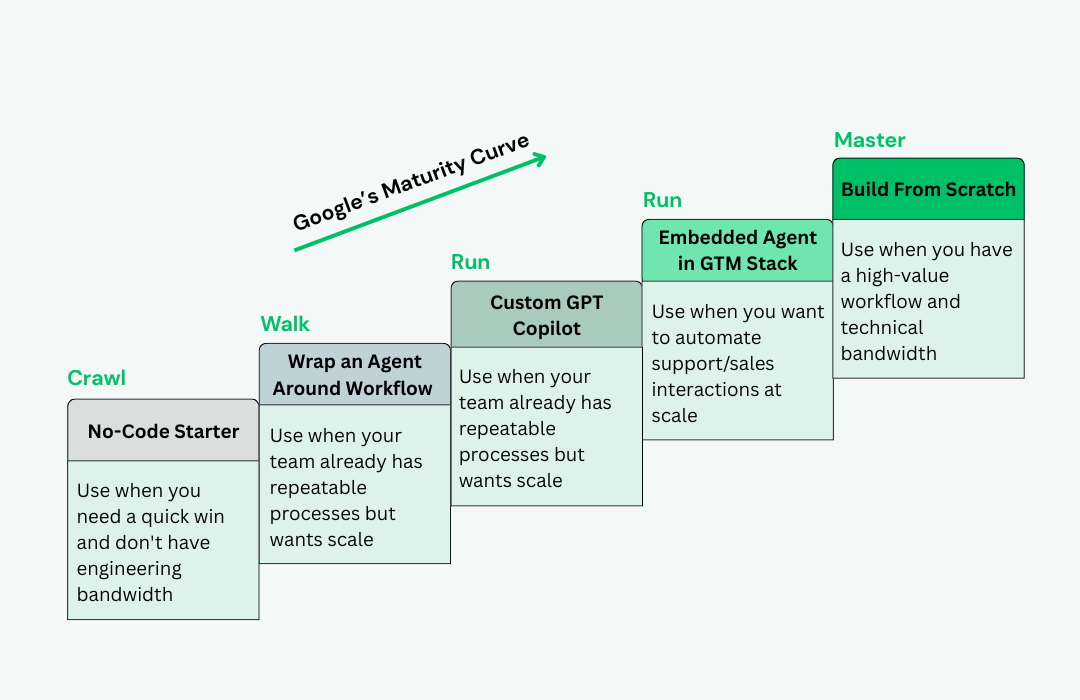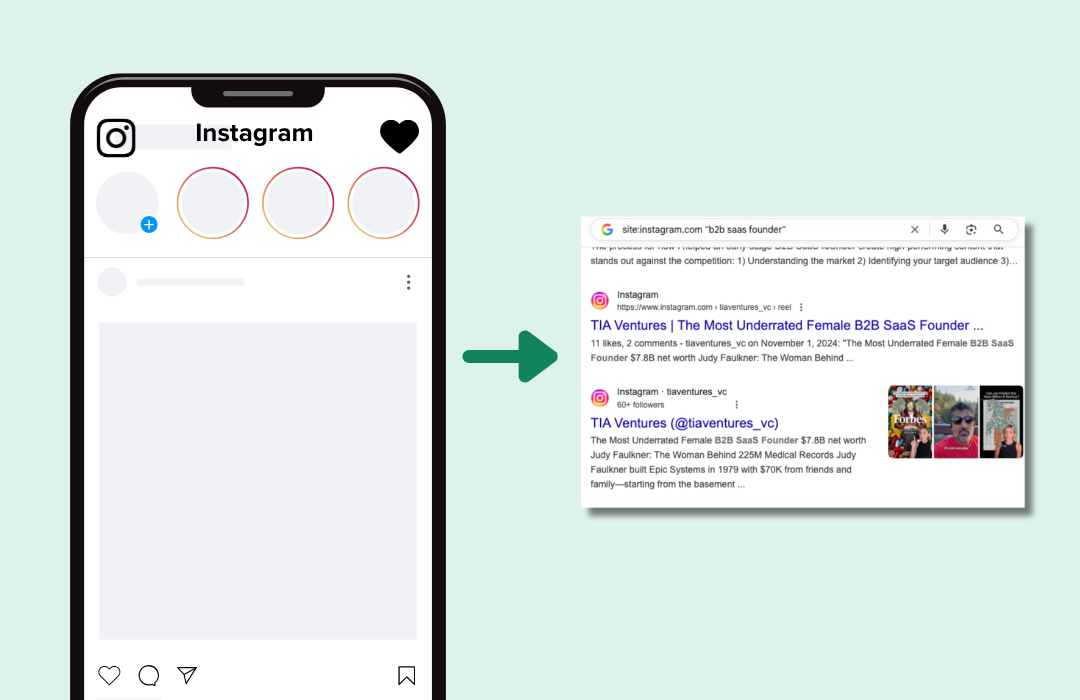How many times has someone reached out to you on LinkedIn because they want something from you that will only benefit themselves?
More importantly, how many times has that actually converted to a deal? Have you ever wanted to actually follow through with a cold pitch you got on LinkedIn? Probably not.
But plenty of sales reps continue down this road.
I ran an experiment about people on LinkedIn pitching on their first couple of messages. During that experiment, 70% of the people who pitched had done so on the first message.
Differentiating a solicitor from a salesperson
I opened that experiment up again with some criteria on how I would measure a salesperson against a solicitor.
Quantifying this was simple.
- Was I pitched?
- Was the cadence of the pitch talking about the soliciting company?
If both those answers were yes, then they were a solicitor.
Of the data acquired (104 solicitations), all used the “I, we, our” cadence, and 75% of respondents pitched in their initial message.

The second experiment’s data was almost identical to the first experiment.
Think about walking around in Times Square and having a person on your left ask if you want to go to a comedy club, while a guy dressed as Goofy on your right asks if you want your picture with him. Both of these people are solicitors. They use a quick plea for you to give them money; then they move on.
This method is called a spray and pray. If you have 100 people in the room, chances are at least three of these people will buy from you.
How does this interaction leave you feeling?
Sales can so frequently come down to how you make someone feel. As the saying goes, people don’t remember what you say, but they always remember how you make them feel.
Anyone can solicit, but not anyone can sell.
However, the line can be razor-thin, especially for those who don’t care to look. Ensure your team is focused on the message, and make sure they search for problems rather than spraying and praying.
Salespeople are not vendors or solicitors. It is on each one of us, from SDRs to sales leaders, to give the right training and support so we aren’t mistaken for a solicitor. Sales takes planning, research skills, understanding of a wide variety of industries and functions. As a sales professional, it’s on you to call out solicitations when you see them. Don’t allow these solicitors to permeate our industry of sales.
How to identify a solicitation
The pitch comes in the first few messages, calls, or emails. It’s a numbers game, not a quality game. Solicitors don’t care who you are or what business you are. They’re casting as wide a net as they can and catching whatever happens to be there (no ICP).
The solicitor doesn’t talk about a problem, but about things you and your company “should” want.
For example: “Don’t you want more revenue for less cost?” This is usually followed by extremely little insight into what their process invokes for how they accomplish what they’re claiming.
- Me, me, me. The cadence of the message revolves around them. The reason for their connection is because they’re working at ABC company and do XYZ. There’s no value added to the prospect whatsoever.
- Irrelevant (at best). The metrics are way out of whack and possibly dishonest. Based on the data noted above, a solicitor noted that they convert 20% of all leads contact per day into sales. So either their churn is incredibly high or the metrics they’re sharing aren’t completely true.
How to stand out as a salesperson
A salesperson wouldn’t pitch in the first message because they don’t know enough about their prospect yet. One of the first lessons you learn in sales is to not make assumptions on your prospect’s business, rather to ask questions.
Thus, a sales professional must understand the business and ask questions first. Good questions will vary depending on the industry, but ensuring you’re asking open-ended questions will help your prospect and you identify further information about the business.
Salespeople would specifically speak to a problem to frame up why they’ve contacted a prospect. Sales professionals don’t struggle to find a reason for their outreach. The reason for their outreach is typically based on identifying a problem that their solution can solve. Sales pros will find a problem, identify that problem, and agree on that problem with the prospect.
- Value first. The cadence of the message will be about a prospect’s business and how the sales professional can add value. The initial outreach is all about leading with empathy while adding value. This could be adding a video, a case study, a relevant article, or some company-branded swag along as a thank-you for their time.
- Just for you. The message doesn’t have “pitchy” qualities. It comes across as personalized, genuine, and natural – not templated, rushed, or lazy.
Signs of a “pitchy” message
You might have a solicitor on your hands if you receive any messaging that includes the following content:
- Questions that are clearly rhetorical. “Would you like to increase your revenue?” or “How would you like to triple the amount of leads you’re currently getting?”
- Your company or job is referenced as a part of their pitch as opposed to an educated discussion around what problems you may be solving for. E.g. “Hi Josh, I work for ABC company, and we do XYZ for companies just like yours! How would you like to triple the amount of your current leads?” The solicitor has given the reason for contacting me as the company they work for. That’s not a good reason to contact me.
- Making the pitch to use their company without a larger discussion about their sales process. A sales process is an important aspect of any deal. Ensuring you’re talking to the right people to confirm you’re a good fit to be a client is just as important as evaluating the organization.
Solicitation rejection response template
I asked my network what they do when they see a solicitation (connect and pitch). I received over 260 comments with a wide range of responses. Some of the frequent keywords I saw in the comments included that a response to these pitches should be:
- Kind, but firm
- Explain that soliciting isn’t what LinkedIn was built for
- Remove the connection altogether
Hey [Name],
Thanks for your note, but I’m not in need of any [help/services/offering] right now. I’ll leave your connection pending for the time being, but if you want to engage with my content and be a voice to those who engage alongside me, I’m happy to accept your connection request!
If you solely connected with me to send a solicitation, I will unfortunately have to ignore your connection request as my goal on LinkedIn is to build a network of individuals looking to add value to others, and solicitation doesn’t do this for me or my network!
Please let me know how you’d like me to proceed.
Best,
[Your Name]
Should the person not respond, you should unfollow and remove them as a connection. If they do, the ball’s in your court with how you want to proceed. You can leave the connection pending, you can accept them – the choice is yours.
How true sales professionals should use LinkedIn
If you can’t solicit, what’s LinkedIn for?
The most successful sales reps focus on two core principles:
- How can they add value to this person’s life?
- Would I say this to the prospect at a face-to-face dinner?
We want to engage, work with, and befriend people with who we want to communicate. People who can add to our lives through humor, friendship, activity – you get the picture. And sales is no different. People buy from people. People work with people (yes, even in B2B sales).
Gone are the days of “it’s business, it’s not personal”. Business is personal and should be treated as such. Lead your sales process with empathy, with the goal of adding value front of your mind.
Make your prospect the hero. It doesn’t matter if the person is a C-level executive, manager, or just a sales rep. Everyone reports to someone.
You should train your team to talk to prospects like they’d chat with a friend over dinner.
Would you say things like, “I’m excited to ask you my next question?” or exclusively talk about yourself? Absolutely not. A conversation over dinner is a give and take. You’ll ask questions, you’ll answer questions, you’ll talk a bit about what you’re up to, you’ll listen a bit about what’s up with your date or friend. The more you relax on sales calls and shoot straight, the more relaxed your prospect will be as well.
All in all, taking the templated conversations and obvious solicitation out of your team’s sales process is going to make it much easier for them to develop relationships and actually close deals. It’s as simple as that.







